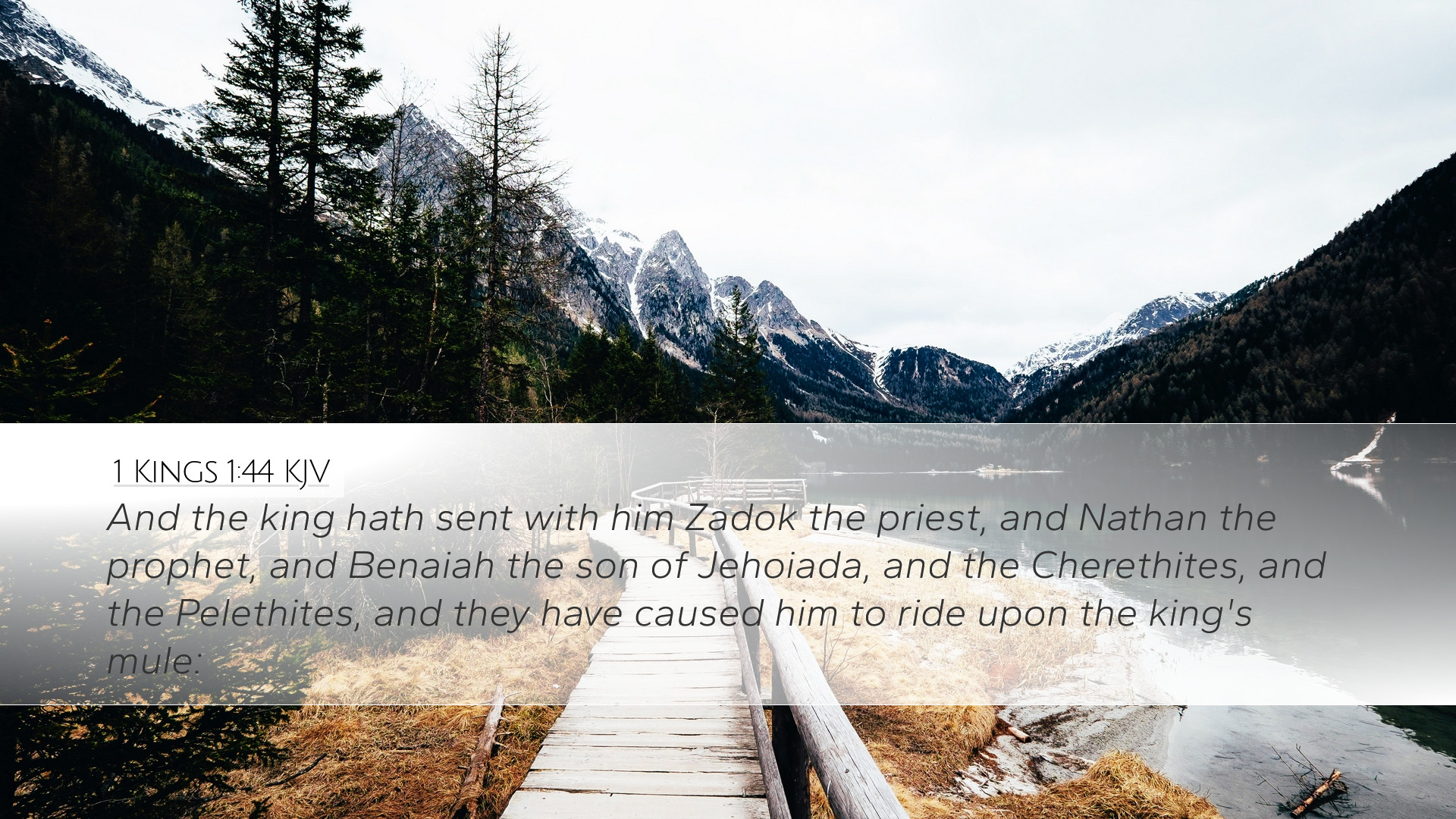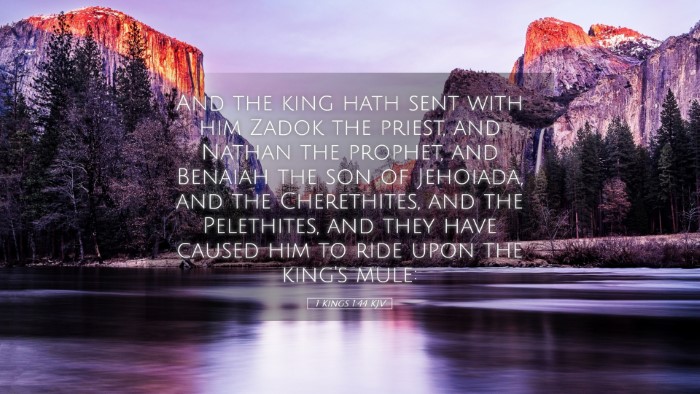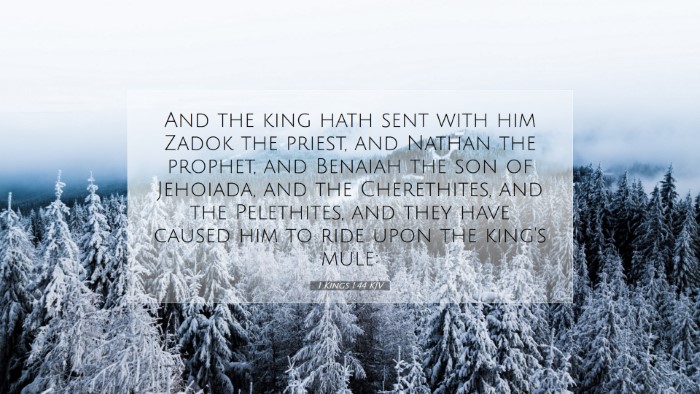Commentary on 1 Kings 1:44
Verse: "And the king has sent with him Zadok the priest, and Nathan the prophet, and Benaiah the son of Jehoiada, and the Cherethites, and the Pelethites, and they have caused him to ride upon the king's mule." (1 Kings 1:44, KJV)
Contextual Overview
In this pivotal moment of Israel's history, King David is in the twilight of his reign, and there is a struggle for succession. This verse occurs amidst the events surrounding Adonijah's claim to the throne while Solomon, David’s chosen successor, is backed by influential figures within the kingdom. The mention of key characters like Zadok the priest and Nathan the prophet signifies the divine endorsement of Solomon as the rightful king, contrasting Adonijah’s self-proclaimed rule.
Key Characters
- Zadok the Priest: His involvement indicates the religious authority endorsing Solomon, highlighting the importance of divine sanction in Israel's monarchy.
- Nathan the Prophet: Nathan’s prophetic wisdom establishes a testament to God's chosen plan for Solomon. His opposition to Adonijah strengthens the legitimacy of Solomon's claim.
- Benaiah the Son of Jehoiada: As a military leader, Benaiah’s support illustrates the alignment of martial power with Solomon’s reign, essential for solidifying his authority.
- Cherethites and Pelethites: These loyal groups signify the king’s guards and their readiness to support the divinely appointed leader, reinforcing the strength of Solomon’s claim.
Thematic Insights
The orchestration of events leading to Solomon’s anointing emphasizes several theological themes:
- Divine Sovereignty: The transition of power from David to Solomon is depicted not just as a political maneuver but as fulfillment of God’s covenant promise regarding the Davidic line.
- Leadership and Validity: The support of influential figures showcases the necessity of both divine and human authority in leadership. Solomon’s ascension is marked by a coalition of spiritual and secular support.
- Fulfillment of Prophecy: This moment encapsulates prior prophetic declarations concerning Solomon, affirming the consistency of God’s plan throughout the narrative of Israel's history.
Commentary Excerpts
Matthew Henry
Matthew Henry notes that this verse represents the clear act of God in the establishment of Solomon’s reign. He emphasizes that Zadok’s and Nathan's support illustrated that the work of God often involves the participation of humans who submit to His will. David's decision is pivotal in reflecting God's promise to him, thereby ensuring the promise’s realization.
Albert Barnes
Barnes explains that the placement of Solomon on the king's mule represents a symbolic act of legitimacy and royal authority. He stresses that Solomon’s anointment by Nathan the prophet is crucial in distinguishing between Adonijah’s unrecognized claim and Solomon’s divine endorsement. This moment serves to demonstrate that God’s choice cannot be undermined by human ambition or desire.
Adam Clarke
Adam Clarke offers an analysis of each figure mentioned, asserting that their roles were not simply ceremonial but deeply significant for the political stability of Israel. Clarke posits that their actions reflect the necessity of unity among the leadership to prevent discord during the transition of power. He underlines the principles of divine ordination in governance and the importance of adhering to God’s mandate in selecting leaders.
Application for Today
For pastors, students, and theologians, 1 Kings 1:44 serves as a crucial reminder of the importance of divine alignment in leadership. In contemporary ecclesiastical and societal structures, the legitimacy of leaders should be rooted not only in their capabilities but also in their alignment with God's will. The choice of leaders can profoundly impact communities, and this passage encourages individuals to seek divine guidance in appointing those in positions of influence.
Moreover, the unity exhibited by Zadok, Nathan, and the military commanders illustrates the necessity of collaboration among various sectors of leadership in the church. This passage encourages an introspection on how leaders today can emulate this unity and humility, ensuring that their authority comes from a place of divine calling and acknowledgment of God's sovereignty.
Conclusion
1 Kings 1:44 encapsulates a significant moment of transition, undergirded by divine backing and human cooperation. It invites reflection on the principles of rightful leadership, the necessity of divine endorsement, and the importance of community among leaders. In understanding the biblical narrative, one finds vital principles for guidance in both ecclesiastical and secular realms, serving to honor God’s ultimate sovereignty over all governance.


